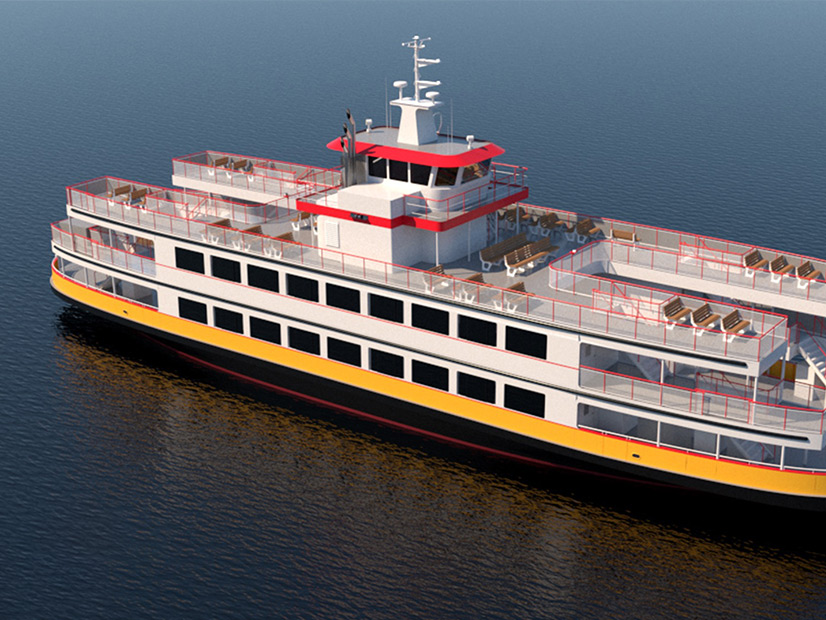High demand charges for a planned electric ferry service in Maine have forced the project owner to consider a pilot energy storage project.
Some stakeholders, however, are not comfortable with the proposed ownership model of the pilot project.
“The statutory basis being argued in support of this project is a very creative interpretation of the law,” Susan Chamberlain, senior counsel for the Maine Office of the Public Advocate, said during a technical conference for the project application last week. “There really isn’t a sound statutory basis for granting this project.”
Nonprofit Casco Bay Lines and Central Maine Power (CMP) filed a joint proposal with the Maine Public Utilities Commission in May seeking approval for the utility to install and own a 1.3 MWh behind-the-meter battery at Casco’s ferry terminal in Portland, Maine (Case 2021-00102).
The fast-charging, hybrid-electric ferry would be among the first in service in the U.S., according to the application. While the ferry can run on diesel, Casco wants to run it only on electricity to maximize emission reductions.
An all-electric service model would incur “significant electricity demand charges since electric charging is needed for 10 minutes every hour during docking periods for up to 17 daily trips during the summer months,” the application said.
Building the pilot energy storage project would allow Casco to charge from the battery during peak electricity demand periods and save $170,000/year in peak costs.
In addition, CMP would study the storage model to inform future electric public transit projects.
CMP is seeking to design, permit, construct, test and maintain the system, and Casco would operate it. The utility said it may be able to obtain a U.S. Department of Energy grant for the pilot, but it also would recover up to half of the $1 million project cost through customer rates.
Casco Bay and CMP say the pilot is consistent with the state’s smart grid statute, which provides a cost recovery mechanism for utilities that invest in battery storage and smart grid infrastructure.
“We read the smart grid statute as authorizing the commission to approve, upon petition, projects that advance smart grid technologies and infrastructure that are cost-effective and prudently incurred,” Timothy Connolly, counsel at CMP parent company Avangrid (NYSE:AGR), said during the conference.
The Conservation Law Foundation opposes the project with CMP as the owner or with costs recovered through ratepayers, Emily Green, senior attorney at CLF Maine, said during the conference. But Green also urged regulators to “take a flexible approach to reviewing pilot proposals.”
“We don’t think pilot proposals should be held to the same criteria or standards for non-pilot utility investments, since they’re designed to advance future efforts, not necessarily to be an end in and of themselves,” she said.
CMP would support the project if another entity owned it and allowed the utility to gather data from it, Connolly said. Casco, which has been transporting people from Portland to the Bay’s islands for 150 years, would not be able to finance the storage project by itself, he added.
The nonprofit agreed in March to use a hybrid-propulsion solution from ABB for its new 156-foot vessel, which is partially funded by federal and state grants. ABB also supplied the propulsion systems for two all-electric tour boats placed into service at Niagara Falls State Park in New York last fall.



